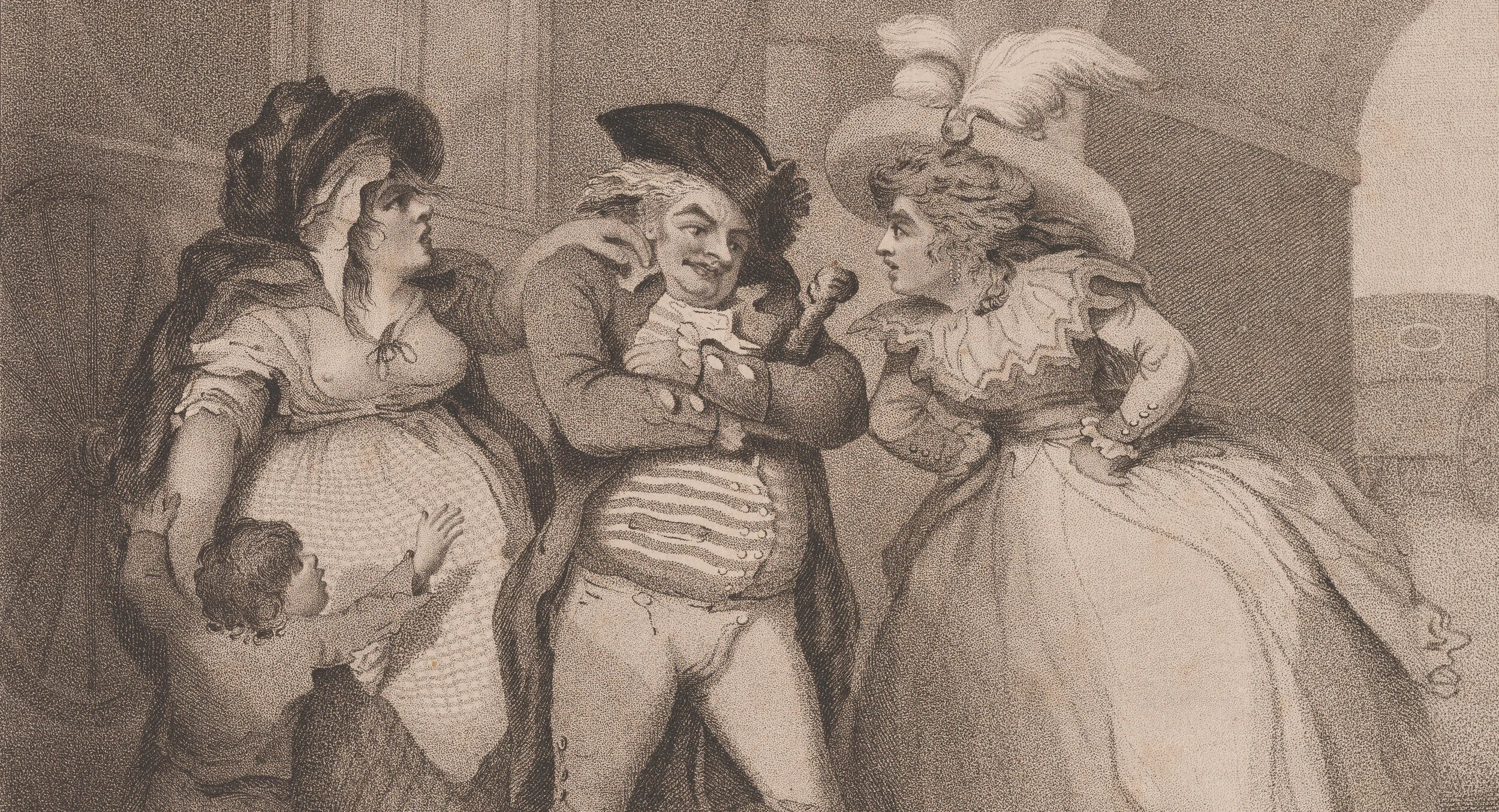Author: David Wilber
Leviticus 18:22 strongly condemns and prohibits homosexual activity, even if such activity is between consenting adults in a loving relationship. According to scholar Roy Gane, the language of this verse is “devastatingly untechnical, leaving no room for ambiguity.”[1] One does not have to like this verse or agree with it, but that does not change what it says.
Why do I point this out? Because in recent days, progressive Christians have claimed that Leviticus 18:22 does not mean what it plainly says. I want to address their objections in this article.
Objection #1: Leviticus 18:22 condemns homosexual acts only in the context of idolatry and temple prostitution.
Rev. Brandan Robertson has argued that the Bible does not condemn homosexual behavior as morally wrong per se; it is condemned only in its association with pagan fertility cults. As Robertson explains:
[Leviticus 18:22] is a prohibition of engaging in sexual sacrifices to honor gods and goddesses. It’s not a prohibition of loving, committed same-sex relationships.[2]
Robertson supports this conclusion by noting that Leviticus 18:22 directly follows the commandment against sacrificing one’s child to Molech (18:21). Robertson also notes the warnings against practicing the “abominable customs” of the Canaanites at the beginning and end of the chapter (18:1-5, 24-30). Thus, according to Robertson, homosexual behavior is condemned only as part of these idolatrous practices.
However, as Robert Gagnon writes, “Few today give this argument much credence and for good reason.”[3] One of the problems with Robertson’s argument is that when the commandment against homosexual behavior is repeated in Leviticus 20:13, it occurs in the midst of the prohibitions against incest, bestiality, and adultery. This context would indicate that homosexual behavior, like incest and adultery, is condemned as a sexual violation in nature—it is not condemned merely in its connection with pagan cultic practices.
It is true that the warnings against practicing Canaanite customs frame the sexual prohibitions given in Leviticus 18, but to suggest that homosexual behavior is condemned only because it is connected with paganism is misreading the text.[4] We don’t try to limit the other sexual prohibitions found in Leviticus 18 to this context, so it would be entirely inconsistent to do so with the prohibition against homosexual behavior. Even scholars who affirm same-sex relationships, like Gerald Sheppard, acknowledge this fact. As Sheppard writes:
I do not think that the texts in Leviticus can be read from a historical perspective as applicable only to cult prostitution because they stand in the context of other laws regulating general immoral conduct such as incestuous relationships, adultery, and bestiality.[5]
Indeed, there is no reason to interpret Leviticus 18:22 as prohibiting homosexual behavior only in a cultic context and not outside of such context. If this verse were intended to prohibit homosexual behavior only within the context of cult prostitution, the author could have easily made that clear by explicitly referencing the cult prostitute in the text, as we see elsewhere in the Torah (e.g., Deut. 23:17-18). The fact that he does not do this indicates a broader application of this law.[6]
Objection #2: Leviticus 18:22 condemns only homosexual rape, not homosexual activity between consenting participants.
Another objection to the straightforward reading of Leviticus 18:22 is to say that the verse intends to condemn only same-sex rape, not homosexual activity per se. As Adam Hamilton writes:
It is worth noting that the story of the attempted gang rape in Sodom is the only example of same-sex sexual activity in the Torah up to this point. Could this have been the backdrop to Leviticus 18:22 and 20:13? Given that this is the only occurrence of a “man lying with a man” is it at least possible that Leviticus 18:22 and 20:13 were condemning homosexual rape rather than anything approximating two people sharing their lives in a loving relationship?[7]
The answer to Hamilton’s question is no. There are a few reasons we know that the aim of Leviticus 18:22 is to prohibit consensual homosexual activity generally.
First, according to Leviticus 20:13, both participants in the act are to be punished. As Richard Davidson writes, “Unlike other ANE laws relating to homosexual activity, both parties here are penalized, thus clearly implying consensual male-male intercourse, not just a case of homosexual rape.”[8] If this verse were prohibiting rape, then it does not make sense that the victim should be punished. When the Torah addresses rape elsewhere, only the rapist is to be punished (Deut. 22:25-26).
Second, if Leviticus 18:22 intended to prohibit only homosexual rape, we would expect the text to be explicit about this qualification, as we see with other ANE legislation governing homosexual activity. However, the absoluteness of the Torah’s prohibitions against homosexual behavior is “unlike anything else found in the ancient Near East or Greece—contexts that made accommodations depending on active role, consent, age or social status of the passive partner (alien, slave, foreigner), and/or cultic association.”[9] The idea that only homosexual rape is being condemned in Leviticus 18:22 seems to be something that is read into the text instead of naturally gleaned from the text.
Third, the suggestion that Leviticus 18:22 condemns only homosexual rape does not make sense contextually. None of the other prohibitions in Leviticus 18 are limited to oppressive forms of those sexual relationships. To assert that Leviticus 18:22 and 20:13 prohibit only homosexual rape is like insisting that Leviticus 18:20 and 20:10 prohibit only coercive forms of adultery. The homosexual act itself is what is being condemned.
What about lesbianism?
Does Leviticus 18:22 also prohibit female homosexual activity? The answer is yes. As Davidson explains:
The Mosaic legislation in general is considered from a man's (male's) perspective. Even the Decalogue is addressed in the masculine singular, but this certainly does not mean that it applies only to the male gender. The masculine singular is the Hebrew way to express gender-inclusive ideas, much the same as it was in English until the recent emphasis on gender-inclusive language. Since the male is regarded as the patriarchal representative of the family, laws are given as if to him (see, e.g., the tenth commandment of the Decalogue) but are clearly intended for both man and woman where applicable.[10]
Indeed, we can understand lesbianism to be implicitly condemned in Leviticus 18:22. Thus, the Torah prohibits all same-sex activity. This commandment is clearly in the background of Paul’s condemnation of male and female homosexual relations in Romans 1:26-27. As Davidson writes, “Paul makes explicit what is implicit in Lev. 18.”[11]
Conclusion
Attempts to limit the application of Leviticus 18:22 to a pagan cultic context fail contextually and logically. Leviticus 20:13 clarifies that the act is condemned as a general sexual violation—it is not condemned merely as part of cultic practices. Moreover, it is inconsistent to restrict the validity of this commandment to a pagan cultic context and not do the same with other commandments found in the same context (incest, adultery, etc.). Finally, the fact that the author does not explicitly limit the application of the commandment to such a cultic context when he easily could have done so indicates that the command has a broader application.
Attempts to suggest that Leviticus 18:22 condemns only homosexual rape fail because Leviticus 20:13 punishes both participants, whereas in cases of rape, only the rapist is to be punished. Moreover, unlike other ANE law codes, the language of Leviticus 18:22 is absolute and without qualification. Finally, the suggestion that Leviticus 18:22 prohibits only homosexual rape does not make sense contextually as none of the other prohibitions in Leviticus 18 are so limited in their scope. (When the author prohibits adultery, he is not prohibiting only one type of adultery in which the woman was coerced; similarly, we have no reason to think that the prohibition against homosexual behavior is about rape.)
Finally, female same-sex activity is implicitly condemned in Leviticus 18:22. Paul makes this implicit condemnation of female same-sex activity explicit in his application of this commandment in Romans 1:26-27. Leviticus 18:22 is unambiguous and straightforward in its condemnation of homosexual activity.
[1] Roy Gane, Leviticus-Numbers (Grand Rapids, MI: Zondervan, 2004), 321.
[2] Rev. Brandan Robertson, “Leviticus 18:22,” TikTok, August 18, 2022, https://www.tiktok.com/@revbrandanrobertson/video/7132957855472176430.
[3] Robert A. J. Gagnon, The Bible and Homosexual Practice: Texts and Hermeneutics (Nashville, TN: Abingdon Press, 2001), 129.
[4] See Ibid., 131: “the Levitical rejection of same-sex intercourse depends on Canaanite practices for its validity about as much as the rejection of incest, adultery, and bestiality.”
[5] Gerald T. Sheppard, “The Use of Scripture Within the Christian Ethical Debate Concerning Same-Sex Oriented Persons,” USQR 40 (1985): 22.
[6] Gagnon, The Bible and Homosexual Practice, 131.
[7] Adam Hamilton, “Stop twisting the Bible: There is no message against same-sex marriage,” Salon, April 12, 2014, www.salon.com.
[8] Richard M. Davidson, Flame of Yahweh: Sexuality in the Old Testament (Peabody, MA: Hendrickson Publishers, 2007), 149.
[9] Robert A. J. Gagnon, "The Bible and Homosexual Practice: Key Issues," in Dan O. Via and Robert A. J. Gagnon, Homosexuality and the Bible: Two Views (Minneapolis: Por- tress, 2003), 63-64.
[10] Davidson, 150.
[11] Ibid., 637.
About David Wilber
David is first and foremost a passionate follower of Yeshua the Messiah. He is also a writer, speaker, and teacher.
David’s heart is to minister to God’s people by helping them rediscover the validity and blessing of God’s Torah and help prepare them to give an answer to anyone who asks about the hope within them (1 Peter 3:15)…































